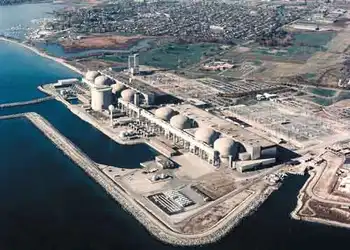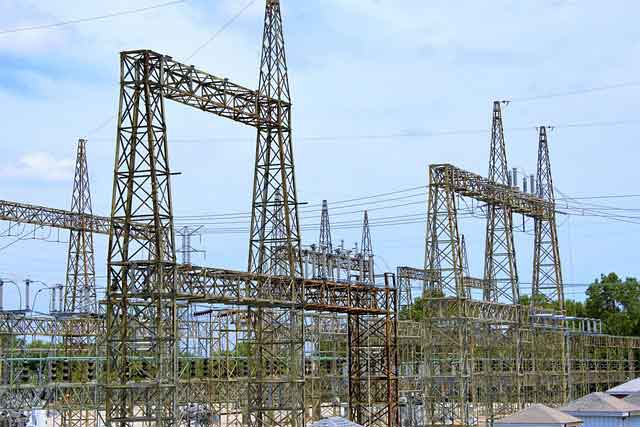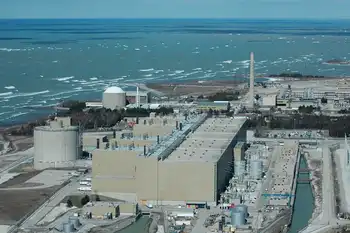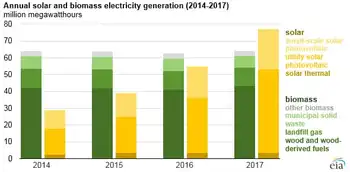TotalEnergies Africa Energy Strategy 2025 spotlights oil, gas, LNG, and renewables, with investments in Namibia, Congo, Mozambique, Uganda, Morocco, and South Africa, driving upstream growth, clean energy, and energy transition partnerships.
Key Points
An investment roadmap uniting oil, gas, LNG, and renewables to speed Africa's upstream growth and energy transition.
✅ Keynote by Mike Sangster at IAE Paris 2025.
✅ Oil, gas, LNG projects across Namibia, Congo, Mozambique, Uganda.
✅ Scaling renewables: solar, wind, green ammonia for export.
Mike Sangster, Senior Vice President for Africa at TotalEnergies, will play a pivotal role in the upcoming Invest in African Energy (IAE) Forum, which will take place in Paris on May 13-14, 2025. As a key figure in one of the world’s largest energy companies, Sangster's participation in the forum is expected to offer crucial insights into Africa’s evolving energy landscape, particularly in the areas of oil, gas, and renewable energy.
TotalEnergies' Role in Africa's Energy Landscape
TotalEnergies has long been a major player in Africa’s energy sector, driving development across both emerging and established markets. The company has a significant footprint in countries such as Namibia, the Republic of Congo, Libya, Mozambique, Uganda, and South Africa. TotalEnergies’ investments span both traditional oil and gas projects as well as renewable energy initiatives, reflecting its commitment to a more diversified energy future for Africa.
In Namibia, for instance, TotalEnergies is advancing its Venus-1 discovery, with plans to produce its first oil by the end of the decade. The company is also heavily involved in the Orange Basin exploration. Meanwhile, in the Republic of Congo, TotalEnergies is investing $600 million to enhance deepwater production at its Moho Nord field.
Beyond oil and gas, the company is expanding its renewable energy portfolio across the continent. This includes significant solar, wind, and hydropower projects, such as the 500 MW Sadada solar project in Libya, a 216 MW solar plant with battery storage in South Africa, and a 1 GW wind and solar project in Morocco designed to produce green ammonia for export.
The Invest in African Energy Forum
The IAE Forum, which TotalEnergies’ Sangster will headline, is an exclusive event aimed at facilitating investment between African energy markets and global investors, including discussions on COVID-19 funding for electricity access mechanisms that emerged, and their relevance to current capital flows. With a focus on fostering partnerships and discussions about the future of energy in Africa, the event will bring together industry experts, project developers, investors, and policymakers for two days of intensive engagement.
The forum will also serve as a crucial platform for sharing perspectives on the role of private investment, as outlined in the IEA investment outlook for Africa's power systems, in Africa’s energy future, strategies for unlocking new upstream opportunities, and the transition to a more sustainable energy system. This makes Sangster's participation, as someone directly involved in both conventional and renewable energy projects across the continent, particularly significant.
TotalEnergies' Diversified Strategy in Africa
Sangster’s keynote address and participation in an exclusive fireside chat will provide an in-depth look into TotalEnergies’ strategy for Africa. His insights will touch upon the company's ongoing projects in the oil and gas sectors, as well as its renewable energy investments. TotalEnergies has committed to making its portfolio more sustainable, underscored by its recent VSB acquisition to expand renewables capabilities, while continuing to be a leader in the energy transition.
One of the company’s notable projects is the Mozambique LNG initiative, a $20 billion venture aimed at supplying liquefied natural gas to international markets. Additionally, TotalEnergies is gearing up for the first oil from its Tilenga field in Uganda, which will be transported through the East African Crude Oil Pipeline (EACOP), the longest heated crude oil pipeline in the world.
In South Africa, TotalEnergies is constructing one of the largest renewable energy projects, a 216 MW solar power plant with integrated battery storage. This project is expected to significantly contribute to the country’s clean energy ambitions. Furthermore, in Morocco, TotalEnergies is developing a major wind and solar facility that will produce green ammonia, aligning with its broader strategy to provide solutions for Europe’s energy needs.
Africa’s Energy Transition
The forum’s timing could not be more critical, given the pressing need for an energy transition in Africa. While the continent remains heavily reliant on fossil fuels for its energy needs, there is growing momentum toward incorporating renewable energy sources, a point reinforced by the IRENA renewables report on decarbonisation and quality of life, which highlights the transformative potential. Africa’s vast natural resources, combined with global investments and partnerships, position the continent as a key player in the global shift toward sustainable energy.
However, Africa faces unique challenges in transitioning to renewable energy, reflecting a broader Sub-Saharan electricity challenge that also presents opportunity, across many markets. These challenges include a lack of infrastructure, financial constraints, and the need for increased political stability in certain regions. The IAE Forum provides an opportunity to address these barriers, with industry leaders like Sangster offering solutions based on real-world experiences and investments.
As the energy sector continues to evolve globally, and even if electricity systems are unlikely to go fully green this decade according to some outlooks, Africa's potential remains vast. The continent’s diverse energy resources, from oil and gas to renewables, offer a unique opportunity to build a more sustainable and resilient energy future. The Invest in African Energy Forum serves as an important platform for global stakeholders to collaborate, learn, and invest in the energy transformation taking place across the continent.
Mike Sangster’s insights at the forum will undoubtedly shape discussions on how companies like TotalEnergies are navigating the intersection of universal electricity access goals, sustainability, and economic growth in Africa. With Africa’s energy needs expected to increase exponentially in the coming decades, ensuring that these needs are met sustainably and equitably will be a priority for both policymakers and private investors.
As the global energy landscape continues to shift, the Invest in African Energy Forum provides a critical space for shaping the future of Africa’s energy sector, offering invaluable opportunities for investment, innovation, and collaboration.
Related News













